November 30th, 2023 marked the first day of COP28, the annual United Nations climate change convention, which was held in Dubai this year. Country leaders, state representatives, and delegates from a wide array of organizations, companies, and universities attend to participate in discussions regarding climate change and to establish landmark policies.
Numerous universities send a delegation of students and faculty to the conference to witness the establishment of climate policy firsthand and to learn from experienced activists and representatives from vulnerable communities.
A current senior at Boston College, Anna Davis, was one of the delegates selected to attend.
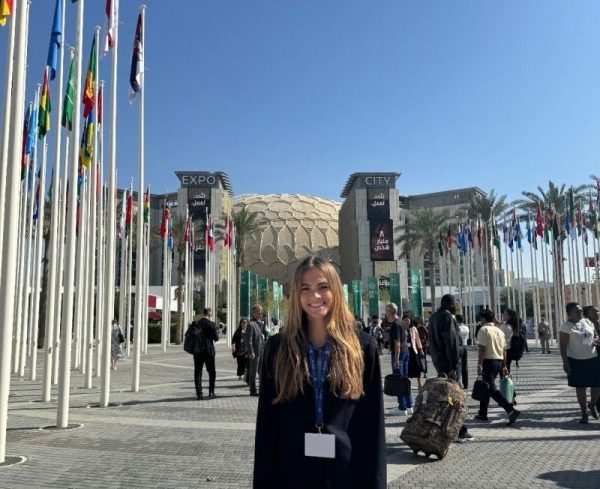
Davis recalled, “This experience was truly eye-opening. I closely followed negotiations between world leaders and observed the intersection between climate change and a variety of issues.”
Each day of the two week long conference follows a thematic agenda, focusing on a prevalent matter relating to climate change.
Davis, who attended during the first week, witnessed discussions on health, finance, gender equality, just transition, indigenous people, multilevel action, urbanization, and transportation.
COP28 was a landmark COP summit, marking the first year in which health was part of the thematic program. Health and climate change are extremely intertwined as issues including pollution, the frequency of extreme weather events, food and water borne diseases, and mental health concerns rise in correspondence with the severity of climate change.
On the Health Day, an Indian lung cancer specialist spoke on a panel, sharing that 30 years ago about 90% of his lung cancer patients were smokers. Today, the air quality in India is so dangerous, that the number of smoker and non-smoker patients contracting lung cancer are split 50-50. He added that pregnant women and infants inhaling this toxic air yields virtually the same effects as if the babies were smoking cigarettes.
While the effects of climate change range far and wide, the health risks posed to humans are not discussed nearly enough. No one is immune to the impacts of climate change.
Numerous speakers discussed the importance of achieving change through a multilevel approach. One particular statistic stood out: meat consumption is projected to double by 2050 and at this rate, we would not meet the goals of the Paris Agreement, even with a phase out of fossil fuels.
Many do not realize the extremely adverse effects that the meat industry has on the environment. In fact, farming livestock is amongst the three leading causes of climate change.
Davis noted that one speaker emphasized how the meat industry produces more emissions than all forms of transportation combined. The speaker expressed his disappointment that even on Health Day, there were little to no discussions on nutrition and the health implications of an animal-rich diet in a society growing increasingly susceptible to climate change.
Davis also expressed her disappointment in the lack of discussions of the meat industry, considering it is one of the main contributors to global emissions. The focus is usually on decarbonizing and eliminating fossil fuels. However, “more positive change would come if people were mindful about what they ate.”
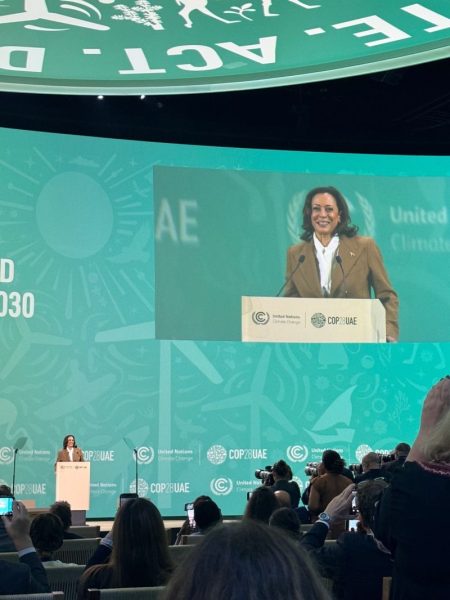
A really intriguing aspect of COP is the fact that many world leaders attend, eager to showcase their own nations’ contributions to a sustainable future and to devise global solutions to the problems posed by climate change. Davis observed speeches by Vice President Kamala Harris, former US Secretary of State Hillary Clinton, and Colombian President Gustavo Petro, among many others. Davis remarked, however, that while it was captivating to hear such prominent individuals speak, hearing from those directly affected by climate change was even more inspirational.
Davis attended a discussion on Gender & Women Day in which indigenous women from Columbia and the Democratic Republic of the Congo spoke about their firsthand experiences with climatic adversity and how issues of food and water scarcity disproportionately affect women and children in their local communities. The implications of climate change are amplified in remote, rural communities where women usually undertake the role of gathering food, water, and household energy resources.
Acquiring such materials becomes more difficult when climate change comes into play. The women also discussed the importance of feminist foreign policy as a means of giving women a voice to enact change within their communities, for they are often not in the position to impact policy making even though they are disproportionately impacted by climate change.
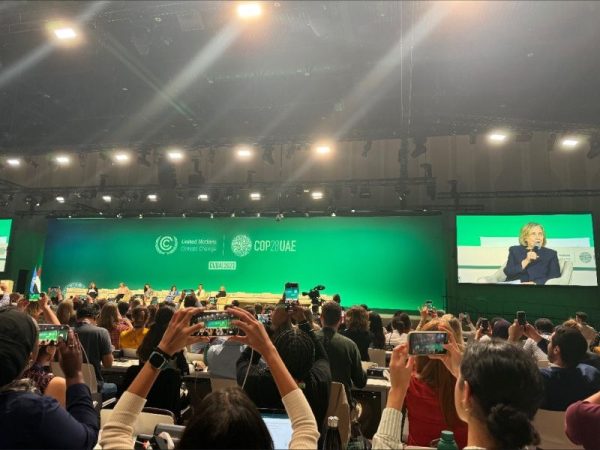
“One of the most surprising and positive outtakes from COP was the youth’s involvement,” said Davis. There were multiple discussion sessions led by the youth, ranging from grad-school scholars to high school students. These young activists engaged with the audience, which consisted mostly of students, encouraging them to ask questions and to share their own opinions and experiences at the COP.
“Climate change is an issue that really impacts the current youth more than any other group of people. Seeing how involved the younger generation was at COP28 was truly inspiring and it really gives me hope that we are moving in the right direction,” Davis shared.
It is instances like these that reveal the importance of involvement, especially when the future of the planet lies in the hands of the younger generation. Students should take advantage of such opportunities presented to them, and take initiative in making a change.
No person is too young, too old, or “not influential enough” to use their voice to do good, especially when it comes to such a timely issue. Change can spark at a local level before it rapidly spreads across the globe.


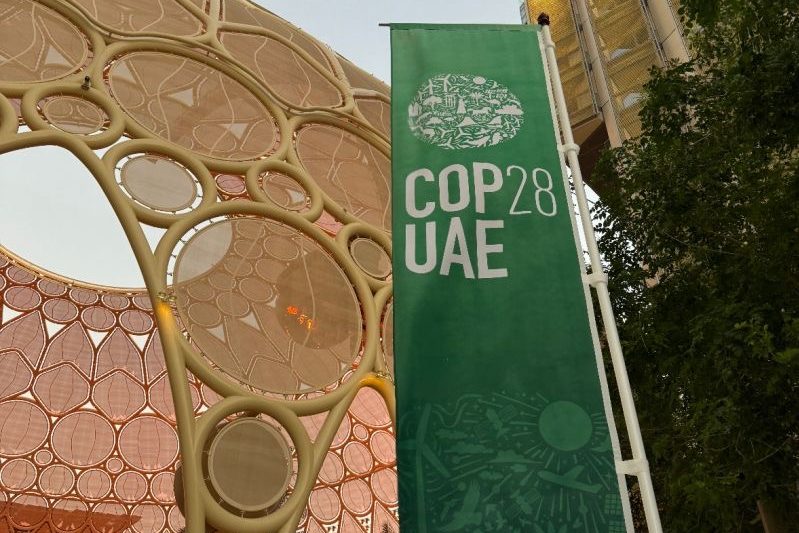


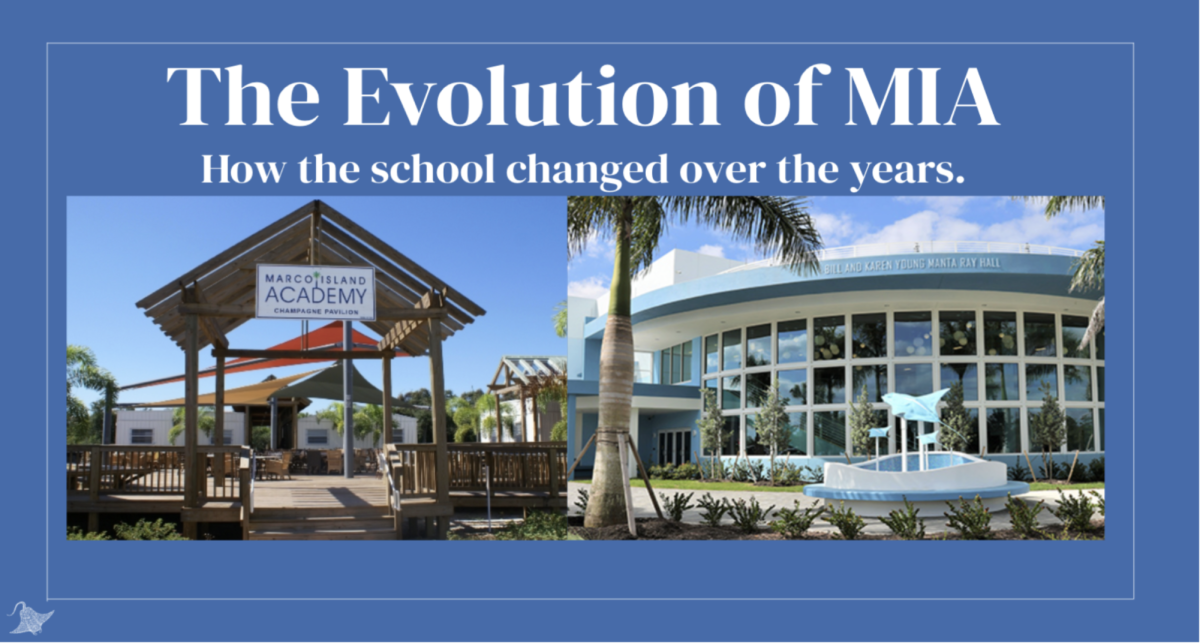


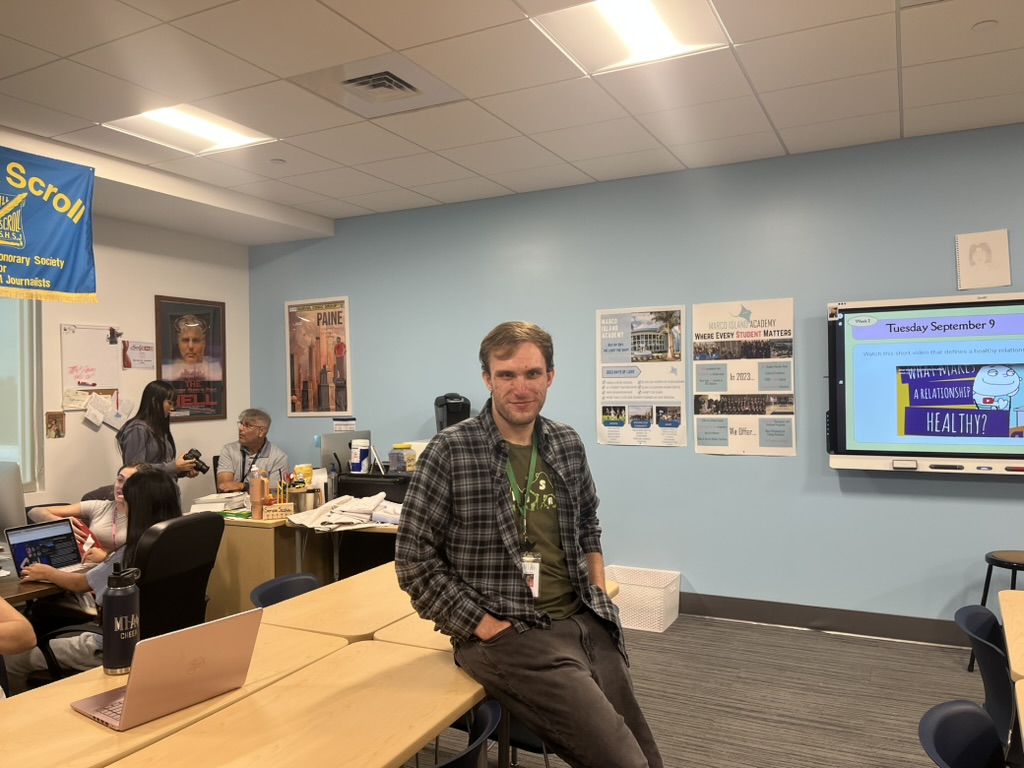


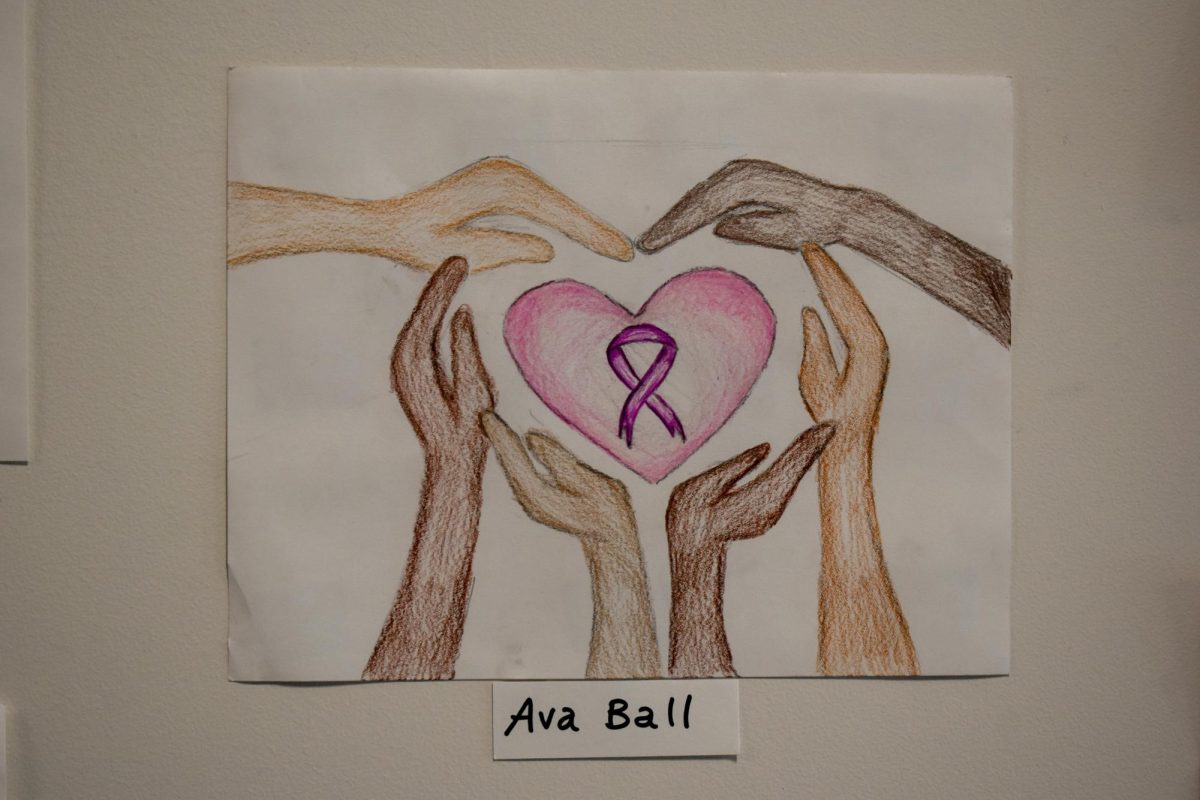



Anna Davis • Jan 9, 2024 at 11:37 AM
So well done! Thanks for taking the time to share my story!
Annabelle Frazer • Jan 9, 2024 at 11:20 AM
so impressively written